What are typical vegan prejudices and myths about plant-based diets? In fact, there are countless, persistent clichés and misconceptions that keep many people from getting to grips with the Reasons for veganism to deal with.
Often it is enough to pronounce the word "vegan" in order to get a strong reaction at the counterpart or even a emotional conflict trigger. This is only logical - after all, most people are particularly concerned about their own eating habits and also about animal welfare. But there are ways and means to make the general discourse more objective in the future. I would like to introduce you to one possibility here.
In this article you will learn some of the most typical clichés about veganism and plant-based nutrition. I will present them to you one by one, refute and disprove them. So that you too can form a more informed opinion about a diet and discard possible prejudices against vegans. Let's go!
Here you can find a short overview in advance:
- Eating animals is my personal choice.
- Without animal products you lack proteins.
- Vegan is way too expensive.
- Plants have feelings too.
- No animals die for eggs and milk.
- The consumption of soy by vegans destroys the rainforest.
- That's just the way the food chain is - we're at the top.
- I only eat meat from happy and humanely slaughtered animals.
- If you were stranded on a desert island, you would also eat meat.
- The whole world will never become vegan.
The most common prejudices against plant-based diet and vegan:in
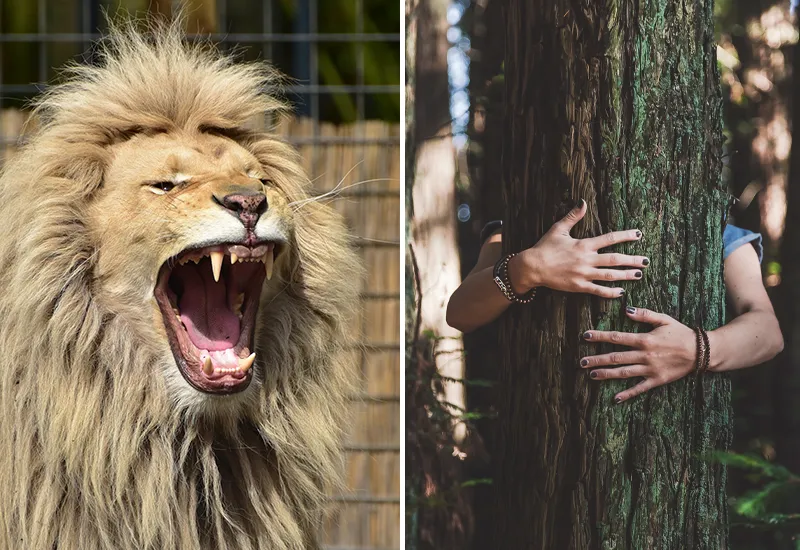
Let's not waste any time. Whether dangerous half-knowledge, myth or cliché - these are the most common prejudices against vegans that I personally hear in everyday life.
Vegan Prejudice #1 - "Eating animals is my personal choice."
Similar prejudice: what you eat is your own business - live and let live.
A personal decision is a decision that affects only you. For example, if tomorrow you choose whether to wear the red or the blue sweater. However, when we decide to eat body parts from animals, definitely always involves a victim.
So eating meat is no longer a decision that affects only yourself - and therefore it is also Not a personal decision. Especially against the background that we no longer need to eat animals to survive - and that the consumption of animal products exacerbates other problems (e.g. the Rainforest deforestation and climate change), which have consequences for all living beings on earth.
Tip: Everyday discussions often end with the fact that meat, cheese and other animal-based foods simply taste too good to stop. After all, taste is one of the Most honest arguments for not being vegan. In the linked article you will get to know more of them.
Vegan Prejudice #2 - "Without animal products, you lack protein."
Similar prejudice: Vegan diet is unhealthy.
In fact, in many plant foods even more proteins than in animal meat. Particularly rich in protein are for example Legumes, in particular Soybeans, moreover Seitan, nuts, seeds and Whole grain products.
But also Broccoli or Mushrooms have - in terms of calories - a high protein content. Pumpkin seeds, peanuts and Oats are also good, alternative sources of protein. So no one needs to fear a protein deficiency due to a meat-free diet. How you can increase your Cover your protein requirements as ideally as possible with plant-based foodsyou can read in the linked article.
A balanced one, vegan diet is not unhealthy. Definitely unhealthy, on the other hand, are residues of Antibiotics, pus or feces in animal foods. Animal products are even responsible for many of the nutrition-related widespread diseases (e.g. type 2 diabetes or high blood pressure).
There is generally no essential nutrient that you can find exclusively in animal products. As with any other form of nutrition, plant-based diets are all about providing your body with the nutrients it needs for long-term health.
Therefore, to be on the safe side, when you make the switch to a plant-based diet, you should Regular blood tests to ensure the supply of the so-called "potentially critical nutrients".
Tip: Just as often it is said that with vegan diet does not build muscle can. In the linked article, you will learn why you can also become or stay fit and powerful with a purely plant-based diet. You will also learn vegan competitive athletes:inside that prove this.
Vegan Prejudice #3 - "Vegan is way too expensive."
Similar prejudice: I can't afford vegan food.
In fact, I hear this vegan prejudice quite often. But to refute it directly: vegan food does not have to be expensive: pasta, rice, potatoes, pulses or regional Vegetables are even the cheapest food in the supermarket.
However, the vegan substitutes are comparatively expensive for example, meat and cheese. The Price differences However, this is mainly due to (currently still) lower production volumes and few competing offers, the state subsidization of the Factory farming and the moderate tax rate for cow's milk, meat and other animal products.
Ready-made products with meat are also expensive. But if you only resort to vegan meat substitutes now and then and otherwise cook mainly fresh with legumes, pasta, rice or vegetables, your vegan diet can ultimately be even cheaper than a mixed diet.
Vegan Prejudice #4 - "Plants have feelings too."
Similar prejudice: when harvesting plants, animals also die.
There are no scientists:inside who could prove that plants are a central nervous system that could indicate a possible sensation of pain. In animals, it is clearly established that they have feelings. Dogs, for example, wag their tails or throw themselves on their backs when they feel pleasure, and chickens start pecking at each other when they are stressed in the dark, cramped confines of factory farms.
So animals clearly have feelings - Plants not according to current knowledge.
But even if plants had feelings, you should live vegan a fortiori. Because to produce one kilogram of beef, for example, about 25 kilograms of grain are needed₁, so that when the animal feed is harvested, many more animals are at risk.
Vegan Prejudice #5 - "No animals die for eggs and milk."
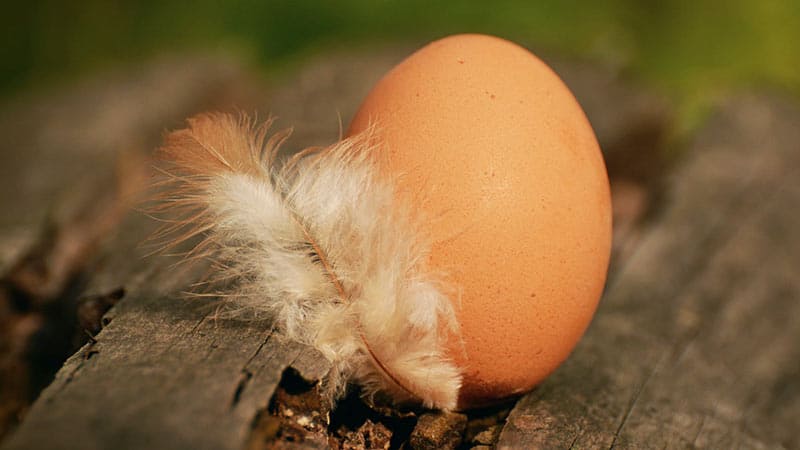
Similar prejudice: I do not eat their body parts.
Unfortunately, this is another common misconception that has also accompanied me for a long time. Through one or the other vegan documentation but then I learned that laying hens have a natural life expectancy of up to eight years. And since their Laying performance decreases rapidly, the hens are slaughtered after only 1.5 years for economic reasons.
Male chicks are a by-product in the egg industry. And since they are useless to the industry, that's exactly how they are treated: shortly after hatching, on the very first day of their lives, the male chicks are Thrown into industrial meat grinders and shredded or gassed alive. This Chick Shredding is a common practice for caged, free-range and organic eggs.
Male calf The situation is similar. Since they do not give milk and are too lean to be fattened, they too are largely worthless to the industry. For this reason, they are also treated as unwanted waste viewed and killed.
Their mothers are also real high-performance machines - and the female calves soon will be. The required "milk output", however, they can provide for a maximum of 6 years₂ before they then lose their value for the industry and are killed. Often this happens much earlier because they have collapsed from exhaustion. Their average life expectancy is around 20 years.
Tip: Why the vegetarian diet is not enoughif you do not have cruelty to animals more, I'll explain in another blog post.
Vegan Prejudice #6 - "Vegan:in's soy consumption is destroying the rainforest."
Similar prejudice: Soy and other imported products eat anyway only the Veganer:innen.
Of the harvest of the world's soybean crops, in reality about 80 percent as ground animal feed in industrial animal feed production, as cows, pigs or chickens grow particularly quickly as a result. Around 18 percent of the harvest is also processed, so that the product can be used as biodiesel or frying oil, for example.
Only from about 2 percent are actually made into soy patties, cutlets, plant milk or other delicacies of the meatless diet.₃ These are then usually European organic soy from GMO-free agriculture. Genetically modified soy is not even permitted as food for end consumers in Germany - but it is permitted as animal feed. Soy cultivation for animal products thus destroys the rainforest.
A similar prejudice is that vegan:in consume so many imported products - for example. Gooji berries and avocados. Whether vegans or meat eaters consume more imported products cannot be proven at present. From my own experience, however, I know that someone who lives vegan from the heart consciously deals with the ethical, social and ecological consequences of his or her own actions and tries to be as environmentally friendly as possible. live as sustainably as possible.
Tip: About the Prejudices against soy I have also recorded a separate article for you. Look gladly times purely!
Vegan Prejudice #7 - "That's just the way the food chain is - we're at the top."
Similar prejudice: we are intelligent omnivores who have always eaten meat. Moreover, other animals also eat animals.
For one thing, we are not at the top of a natural food chain. Otherwise you would not be afraid to meet a lion unarmed or swimming in a pool with crocodiles or sharks. On the other hand, a food chain is a group of organisms that depend on each other in a certain order for their food. However, we are not dependent on eating animal body parts. We can eat a purely plant-based diet and not have to fear any negative, health consequences.
Even if we were at the top of the food chain, how could we justify killing some 74 billion farm animals each year just to keep their Eating body parts even though we don't have to?₄ And why do we humans get so uncomfortable when we see pictures of how animals are treated for our food? Malaise is not exactly the behavior one would expect from an apex predator.
And what about the argument of intelligence? Every human and non-human animal is more intelligent in some discipline than the other. But even if we were more intelligent in every discipline, intelligence cannot be used to justify the deliberate suffering caused to other creatures for the sake of a steak or a bologna sandwich.
As you can see, there are other clichés and misconceptions in this prejudice. So that this paragraph does not become too long, I explain and invalidate them in these, further articles:
- Are we humans carnivores, omnivores, or herbivores?
- Animals eat other animals, too - so I can, too.
- We have always eaten meat.
Vegan Prejudice #8 - "I only eat meat from animals that have been humanely slaughtered."
Similar prejudice: I eat very little meat - and when I do, it's from happy animals that have had a good life.
Humane slaughter is a so-called Oxymoron - two terms that contradict each other. Humane means merciful, humane, lenient and without harshness. You cannot kill a living being in a merciful, humane way that does not want to die.
Or how would you slaughter or kill someone in a humane way? Certainly not with a bolt gun, upside down in an electric bath and certainly not in a gas chamber. Yet these are precisely the most "humane" killing methods in factory farming, from which around 98 percent of meat in Germany comes.₅
Try to put yourself in the position of the cow or the pig. and then decide which of these ways of death you would prefer. Whether organic or conventional - in the end, all animals end up in the same slaughterhouse.
Assuming an animal could actually be killed humanely, how would you ensure when buying your meat that the animal was also killed in a humane way for you? You can not guarantee if the animals were happy and had a good life. And even if they had it: wouldn't you rather redeem the animals that have a bad life, so that the happy animals can continue to live out their joy of life?
Vegan Prejudice #9 - "If you were stranded on a desert island, you would eat meat."
Similar prejudice: When it comes to survival, you'd kill an animal too - plus you have leather shoes and a smartphone and you're not perfect.
Veganism is not about making everything perfect. Rather, it is about the fact that one's own daily actions do not require sacrifices.
But suppose I were really standing on a desert island: if there are animals on this hypothetical island, then there is also vegetation - that is, plants that can be eaten. In reality we are lucky enough, to live where we can get all the food we need to live at any time. We do not fight for our survival, but have the free choice whether we eat body parts of animals or eat a plant-based diet.
On the Lack of perfection is often alluded to with the smartphone or the leather shoe argument - because child labor may have been used or because one can simply not 100 percent vegan is. But apart from the fact that no one is perfect, a smartphone at least helps to participate in daily social life - and the leather shoes are usually old stock or even made of vegan leather for Veganer:innen.
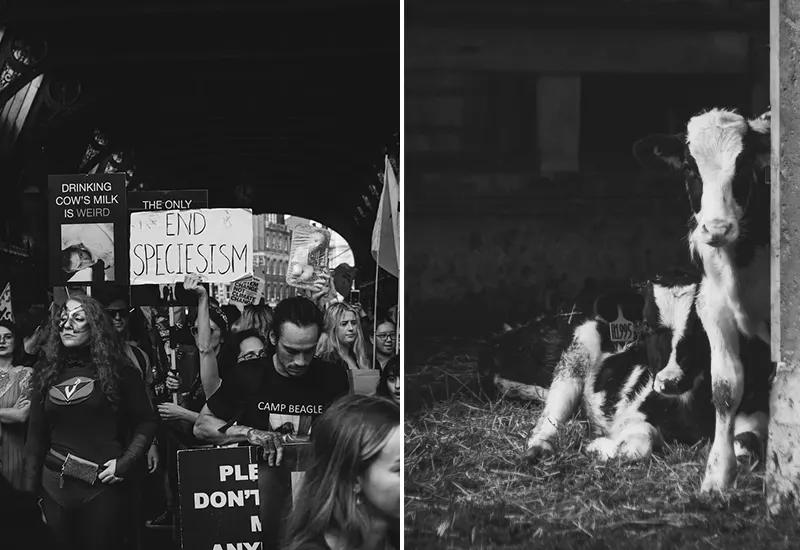
Vegan Prejudice #10 - "The whole world will never go vegan."
Similar prejudice: You alone can't change anything anyway.
Veganism is more than a passing trend. It describes a heartfelt commitment to animal welfare that you don't suddenly stop. Veganism is a global movement and animal-friendly way of life, which is so many injustices in the world eliminated at the same time - but it also takes time.
For example, it also took 400 years to convince white Americans:inside to stop keeping slaves. Injustices, however, do not exist forever. Vegan:in you don't become one because meat tastes so bad, but because your heart says it's wrong to exploit, torture and kill animals for your own pleasure - and to let 800 million people starve₆, while at the same time we feed 56 billion farm animals.₇
So veganism actually counteracts several injustices at once - that's the reason that at some point in the future, basically. feed all people vegan be Eating animals will then be socially frowned upon.
In any case, you are not alone on the way there. The movement is growing rapidly. The only question is: Which side of history do you want to be on? On the side of the people who have spent their lives paying for animal suffering or on the side of the people who have worked for the welfare and rights of animals?
Debunking prejudices against veganism in everyday life
I hope that I can start with the usual Sayings, which one is exposed as Veganer:in up-to-date still, a little further clean up and Reduce possible prejudices could. There are so many more misconceptions and clichés, but to name them all would have gone beyond the scope of this article.
Just listen to your heart, break away from old habits and let new routines emerge. Personally, after the Dominion film and some Street interviews of animal rights activists my prejudices, because since then I have been making my nutritional decisions Viewed from the perspective of animals have.
Finally I would like to show you the Book "Vegan ist Unsinn!" by Niko Rittenau, Ed Winters and Patrick Schönfeld. Because in it really all prejudices against Veganer:innen are plausibly logically refuted. Here you get it*.
Do you have questions or do you know more vegan prejudices and quick-witted answers to them? Then feel free to leave a comment!
Be always kind to animals,

PS: For more info and a good start into the vegan everyday life I recommend you the articles about Veganism and the vegan lifestyle.
References:
₁ Things Explained - In Brief: Meat - The World's Tastiest Evil, YouTube, Jan. 24, 2019, web, Jan. 18, 2023 at 10:54 a.m., in: https://www.youtube.com/watch?v=y6f3dwxexZM.
₂ F. Enzenhofer: Let the hens have their eggs!, available at https://www.veganblatt.com/huehner-eier. [18.01.2023].
₃ Albert Schweitzer Foundation for Our Environment: Why Soy Sausage Doesn't Harm the Rainforest (as of 01.06.2018). https://albert-schweitzer-stiftung.de/aktuell/warum-sojawurst-nicht-dem-regenwald-schadet. [18.01.2023].
₄ Things Explained - In Brief: Meat - The World's Tastiest Evil, YouTube, Jan. 24, 2019, web, Jan. 18, 2023 at 08:53 AM, in: https://www.youtube.com/watch?v=y6f3dwxexZM.
₅ Bayerischer Rundfunk: Tierwohllabel - ein Ausweg aus der Massentierhaltung? (Oct. 05, 2022), available at https://www.daserste.de/information/wissen-kultur/w-wie-wissen/tierwohllabel-100.html. [18.01.2023].
₆ Deutsche Welthungerhilfe e.V.: Hunger: prevalence, causes & consequences (as of 04.05.2020). https://www.welthungerhilfe.de/hunger. [18.01.2023].
₇ M. P. Rowland: 11 Facts About Your Food That Will Shock You (as of Jan. 03, 2017), available at https://www.forbes.com/sites/michaelpellmanrowland/2017/01/03/shocking-food-facts/#62b4a09d1574. [18.01.2023].

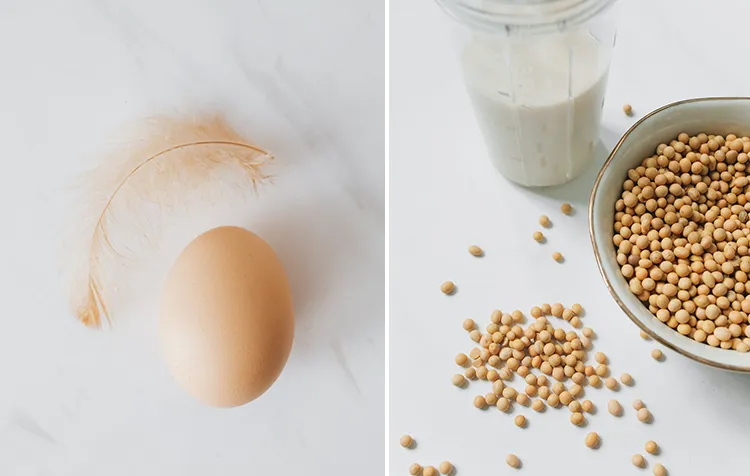
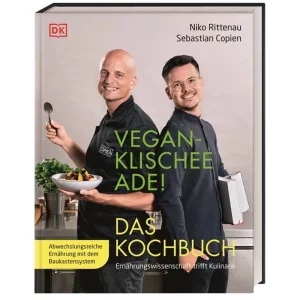

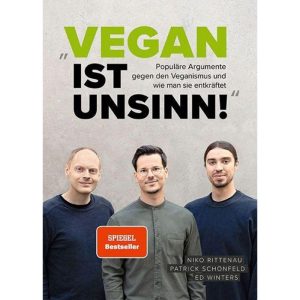




This article answered many of my questions about "Vegan Prejudices - 10 Common Myths and Clichés About Veganism and Plant-Based Diets." I really enjoyed reading the article and got interesting ideas from it. Keep up the good work and write interesting articles on top topics.
Comments are closed.